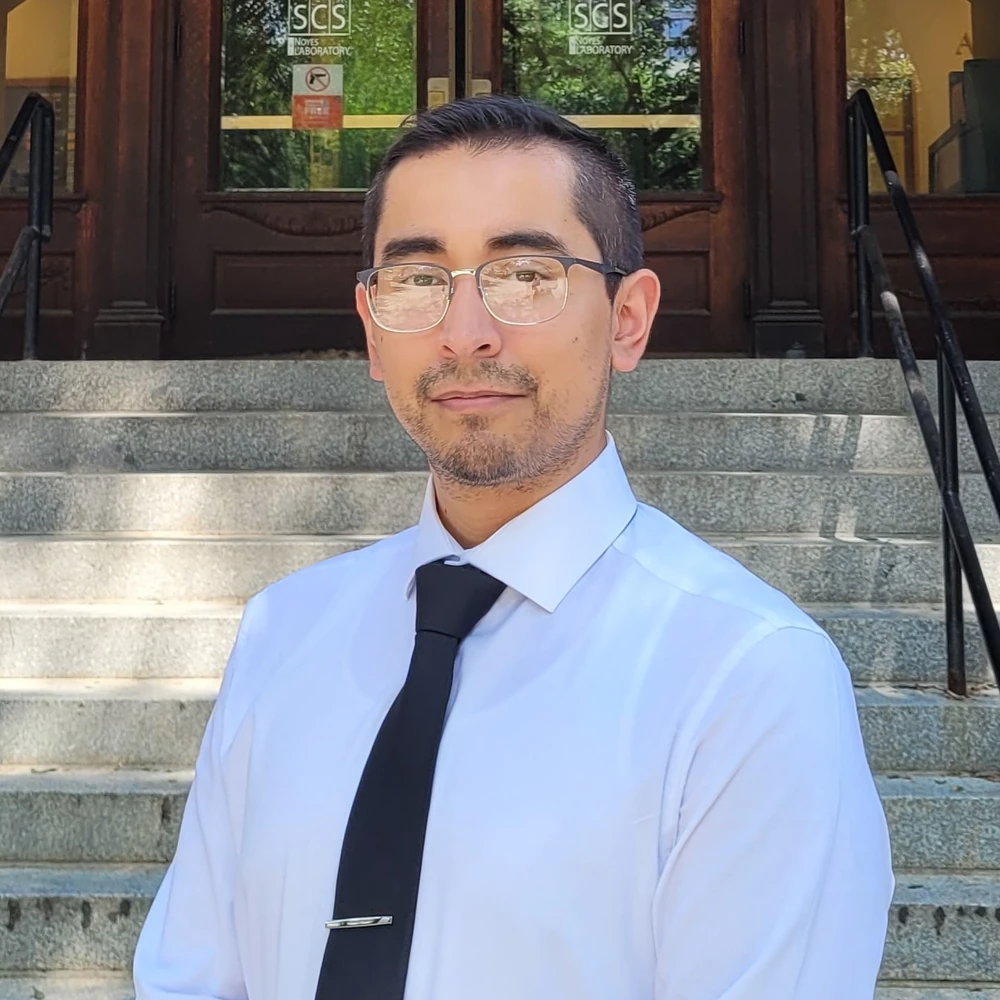
Even at a young age, Carlos Juarez-Yescas knew he wanted to be a scientist or inventor.
Fascinated with controlling and creating new things, he did his own science experiments at his family’s home in the Oaxaca area of Mexico, and at school, he bombarded science teachers with random what-if questions and drove the class off topic trying to get answers.
Now, as a fourth-year PhD student in chemistry, Juarez-Yescas is focusing his scientific curiosity on improving solid state batteries, a technology that could revolutionize the performance of electric vehicles, most of which are currently powered by conventional lithium-ion batteries.
“I am passionate about making our energy needs more sustainable and less taxing on the environment. As a chemist, I know that batteries are a critical piece of this puzzle. I am also drawn to challenges,” he said.
Solid state batteries are a safer and more energy dense alternative to conventional liquid electrolyte-based Li-ion batteries, but a critical challenge is improving the interaction between the electrode and solid electrolyte material. That’s where Juarez-Yescas is focusing his research.
“My overarching goal is to enable a solid-state battery using high energy density, binder free and conductive-additive free electroplated LiCoO2 (LCO) as the cathode. Specifically, I am modifying the LCO surface with fluorine to enhance its high voltage stability, cyclability and solid electrolyte compatibility,” explained Juarez-Yescas, who works in the research group of Paul Braun, Ivan Racheff Professor of Materials Science and Engineering, and Professor of Chemistry at Illinois. Juarez-Yescas was initially drawn to organic chemistry in high school when he participated in Project SEED sponsored by the American Chemical Society.
“Through this program I worked in Prof. Lawrence J William’s group at Rutgers University, where I learned what it meant to be an organic chemist. This originally made me fall in love with organic chemistry. But through my undergraduate and master’s research I found my true calling in electrochemistry and materials science,” he said.
That calling led him to Illinois when he met Prof. Joaquin Rodriguez Lopez at a conference in Mexico.
“He introduced me to graduate student opportunities at UIUC. I researched all the offerings of UIUC and knew that I wanted to contribute to its high level of research and be a part of its learning community,” said Juarez-Yescas, who completed his undergraduate degree and Master’s in chemistry at the Universidad Autonóma Metropolitana in Mexico City.
As an undergraduate researcher, he published a paper on reduced graphene oxide as a Li ion battery additive, which received an award from the Mexican Electrochemistry Society (Sociedad Mexicana de Electroquímica or SMEQ). During his master’s, he delved into research on environmentally friendly copper-based Li-ion cathodes, which led to another publication and award from the Mexican Chemical Society (Sociedad Química de México).
“I take pride in being the first in my family to not only complete high school but also to achieve a degree,” he said. “(My parents) have always supported me and encouraged me to follow my calling.”
Juarez-Yescas said one of his favorite things about research is the uncertainty of what you will discover next.
“Often times, research is trying to find a solution to a new problem. We can sometimes use our knowledge to test a possible solution, but in the process, we sometimes discover solutions to other problems or sometimes discover new challenges. My research often has me in deep thought about new and creative ways to tackle the hurdles I encounter,” he said.
After his PhD, Juarez-Yescas said he would enjoy being a professor.
“I enjoy sharing my knowledge and questions. I like the dynamic space of academia, and I would be honored to be a professor at an institution like UIUC,” he said, adding that those aspirations are one reason he is a mentor to undergraduate students in multiple programs, including the C2 program, Illinois Scholars Undergraduate Research program, and the Merit Mentoring and Professional Network.
When he takes a break from his science, Juarez-Yescas enjoys cinema.
“I get lost in a completely different world while trying to decipher the subtle clues left by the screenwriter or director in the dialogue, music or even lighting,” he said. “More recently, my wife and I have started a new hobby. We are learning to stargaze. There is something incredibly humbling about gazing at the night sky and pondering about our place in the universe.”
And his favorite place on campus?
“Walking by the Japan House and the surrounding gardens, regardless of the time of year. The tranquility is hard to beat,” he said.